 | TODAY IN SCIENCE HISTORY NEWSLETTER - 25 JANUARY |
| Book of the Day | ||
|
| Quotations for Today | |
| The patent system was established, I believe, to protect the lone inventor. In this it has not succeeded. � The patent system protects the institutions which favor invention | |
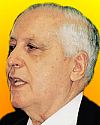 | The future is uncertain� but this uncertainty is at the very heart of human creativity. - Ilya Prigogine, Russian-Belgian physical chemist (born 25 Jan 1917). |
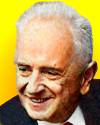 | Evolutionary plasticity can be purchased only at the ruthlessly dear price of continuously sacrificing some individuals to death from unfavourable mutations. Bemoaning this imperfection of nature has, however, no place in a scientific treatment of this subject. |
| Quiz | |
| Before you look at today's web page, see if you can answer some of these questions about the events that happened on this day. Some of the names are very familiar. Others will likely stump you. Tickle your curiosity with these questions, then check your answers on today's web page. | |
| Births | |
William Shanks, born 25 Jan 1812, was an English mathematician who spent numerous years on a manual calculation. Shanks kept a boarding school at Houghton-le-Spring in a coal mining area near Durham. His calculation reached 707 places by 1873, a feat unchallenged until the use of electronic computers. What was the subject of his calculation? What was the subject of his calculation? | |
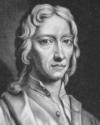 | An Anglo-Irish chemist, born 25 Jan 1627, is noted for his pioneering experiments on the properties of gases and his espousal of a corpuscular view of matter that was a forerunner of the modern theory of chemical elements. One of the well-known gases laws is known by his name. Can you name this scientist? Can you name this scientist? |
| Deaths | |
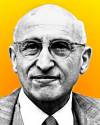 | Beno Gutenberg (1889-1960) was an American scientist who is noted for deriving information about the physical properties of the Earth's interior.  What method did he use for his discoveries. What method did he use for his discoveries. |
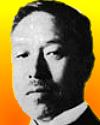 | Kiyoshi Shiga (1871-1957) was a Japanese bacteriologist who discovered (1897) a bacillus associated with an infection leading to diarrhea, fever, stomach cramps and possible hospitalization. The disease was named after him. He also developed dysentery antiserum (1900).  What is the name of the disease named after him? What is the name of the disease named after him? |
| Events | |
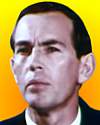 | On 25 Jan of a certain year, Dr. Christian Barnard transplanted the first human heart without the removal of the old one. In which decade did this transplant take place? In which decade did this transplant take place? |
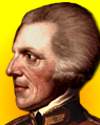 | On 25 Jan 1798, Benjamin Thompson presented a paper to the Royal Society, Enquiry concerning the Source of Heat which is excited by Friction, in which he presented the idea that heat represents a form of motion, as opposed to the prevailing idea of being a fluid. He had come to this conclusion from his observations of the mechanical production of a certain armament. What was the manufacturing operation he observed? What was the manufacturing operation he observed? |
| Answers |
| When you have your answers ready to all the questions above, you'll find all the information to check them, and more, on the January 25 web page of Today in Science History. Or, try this link first for just the brief answers. Fast answers for the previous newsletter for January 24: in a fraction separated from liquid air • they are almost identical • vitamin C • the low vacuum Geissler tube to study the effect of electricity on traces of gases therein • Voyager 2 • decade including the year 1848. |
| Feedback |
 If you enjoy this newsletter, the website, or wish to offer encouragement or ideas, please send feedback by using your mail reader Reply button. If you enjoy this newsletter, the website, or wish to offer encouragement or ideas, please send feedback by using your mail reader Reply button. Your click on a StumbleUpon, Google+ or Facebook social button on the site webpages is also a welcome sign of appreciation. Thank you for using them. |
| Copyright |
| To find citations for quotations go to the corresponding webpage by clicking on the “quotes” balloon icon. Sources for the thumbnails appear on today's webpage with the corresponding item. � This newsletter is copyright 2014 by todayinsci.com. Please respect the Webmaster's wishes and do not put copies online of the Newsletter � or any Today in Science History webpage. (If you already have done so, please remove them. Thank you.) Offline use in education is encouraged such as a printout on a bulletin board, or projected for classroom viewing. Online, descriptive links to our pages are welcomed, as these will provide a reader with the most recent revisions, additions and/or corrections of a webpage. For any other copyright questions, please contact the Webmaster by using your mail reader Reply button. |
--
If you do not want to receive any more newsletters, Unsubscribe
To update your preferences and to unsubscribe visit this link
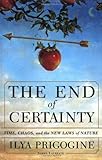

Δεν υπάρχουν σχόλια:
Δημοσίευση σχολίου